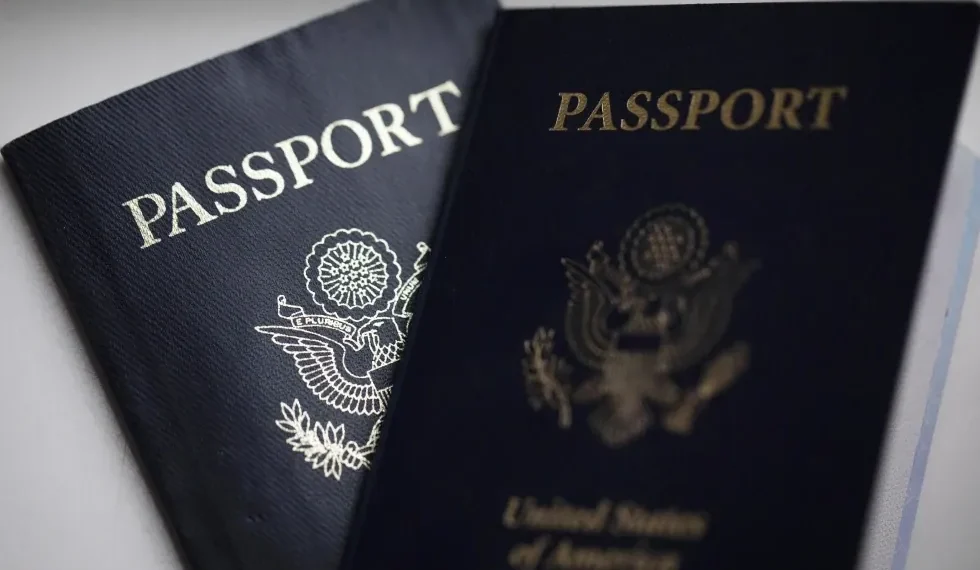Trump Administration Asks Supreme Court to Reinstate Passport Policy Requiring Male or Female Designations for Transgender and Nonbinary People
Published Time: 09-20-2025, 16:15 EDT
The Trump administration has asked the U.S. Supreme Court to allow enforcement of a passport policy requiring male or female sex designations based on birth certificates. The Justice Department filed the emergency appeal after lower courts blocked the policy, which transgender and nonbinary advocates argue violates constitutional rights.
The case highlights a growing legal battle over identity documentation and gender recognition, with potentially far-reaching consequences for millions of Americans.
The Passport Policy in Question
At the heart of the dispute is a policy issued under former President Donald Trump that mandates passport applicants identify as either male or female, as listed on their original birth certificate. The rule eliminates the option of an “X” gender marker, which some states and federal agencies had begun to recognize in recent years.
The administration argues that official government documents must reflect what it terms “immutable biological classifications.” The Justice Department maintains that allowing gender markers outside of male or female would compromise the accuracy and reliability of federal identification.
Legal Challenges and Court Rulings
The policy immediately drew legal challenges from transgender and nonbinary Americans, who said the rule denied their rights and put them at risk when traveling.
In June 2025, a federal judge blocked the enforcement of the passport policy, ruling in favor of plaintiffs who feared that applying under the new system would lead to rejection or forced disclosure of personal medical history. An appeals court upheld that ruling, leaving the injunction in place.
On Friday, the Justice Department formally petitioned the Supreme Court to intervene and reinstate the policy while litigation continues.
Government’s Argument Before the Court
Solicitor General D. John Sauer defended the policy in the administration’s filing, writing:
“The Constitution does not prohibit the government from defining sex in terms of an individual’s biological classification.”
Sauer also referenced the Supreme Court’s recent decision upholding a state ban on transition-related medical care for transgender minors. The Court’s conservative majority ruled that such laws do not constitute sex discrimination under the Constitution, and Sauer argued that reasoning supports the passport designation policy.
Reactions from Plaintiffs and Advocacy Groups
Civil rights groups immediately condemned the administration’s move. Attorneys for the plaintiffs, including the American Civil Liberties Union (ACLU), said the rule unfairly singles out transgender and nonbinary Americans.
“This administration has taken escalating steps to limit transgender people’s health care, speech, and other rights under the Constitution, and we are committed to defending those rights,” said Jon Davidson, senior counsel for the ACLU’s LGBTQ & HIV Project.
Advocates argue that passports reflecting an individual’s lived gender identity are essential for safety and equality, particularly for those who may face discrimination or harassment when traveling internationally.
Real-World Impact of the Policy
Transgender and nonbinary applicants have already reported difficulties under the current system. Actor Hunter Schafer, for example, revealed earlier this year that her newly issued passport contained a male gender marker, despite years of legal recognition as female on her driver’s license and prior passport.
Plaintiffs in the case told the court that many in their community now fear applying for a passport altogether, worried about rejection, outing, or being forced to carry documents that do not reflect their identity.
Broader Policy Context
The passport dispute is part of a broader set of legal and political battles over transgender rights under the Trump administration. Earlier rulings from federal courts have addressed bans on transgender individuals in the military and restrictions on transition-related health care.
Since issuing an executive order in January 2025 declaring the U.S. would “recognize two sexes, male and female,” the administration has sought to align federal identification documents, health care policies, and civil rights protections with that definition.
Supporters of the policy argue that it ensures consistency across government records. Critics contend it erases the legal recognition of transgender and nonbinary people, contradicting existing state and international standards.
What Comes Next at the Supreme Court
The Supreme Court will now decide whether to grant the Trump administration’s request to temporarily reinstate the policy while the underlying lawsuit proceeds. If the Court agrees, the State Department could begin enforcing the male-or-female-only designation immediately, even as challenges continue.
The case is expected to test the boundaries of constitutional protections around sex and gender identity. Legal analysts note that the Court’s conservative majority has shown willingness in recent years to defer to states and federal agencies in defining gender classifications.
A decision on the emergency application could come within weeks.
Conclusion
The Trump administration’s appeal underscores the ongoing national debate over gender identity, federal documentation, and constitutional rights. For transgender and nonbinary Americans, the outcome will determine not just how they are recognized by their government but also how safely and freely they can travel abroad.
The Supreme Court’s ruling on this issue may set a precedent shaping U.S. identity policy for years to come.
This article was rewritten by JournosNews.com based on verified reporting from trusted sources. The content has been independently reviewed, fact-checked, and edited for accuracy, neutrality, tone, and global readability in accordance with Google News and AdSense standards.
All opinions, quotes, or statements from contributors, experts, or sourced organizations do not necessarily reflect the views of JournosNews.com. JournosNews.com maintains full editorial independence from any external funders, sponsors, or organizations.
Stay informed with JournosNews.com — your trusted source for verified global reporting and in-depth analysis. Follow us on Google News, BlueSky, and X for real-time updates.














